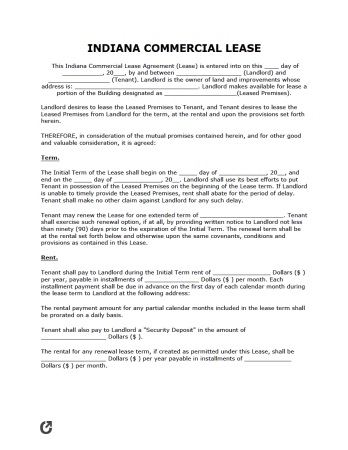
The Indiana Rental Lease Agreements are contracts used to formalize an arrangement where a landlord leases a residential property to one (1) or more people. The agreements cover a wide range of topics that ensure both parties are clear on what they can and can’t do for the lease term. In Indiana, leases are governed by the state’s Landlord-Tenant laws (§§ 32-31).

Commercial Lease Agreement – A contract used for renting out land, property, and individual spaces to tenants who own a business or are planning on opening one in the property location.
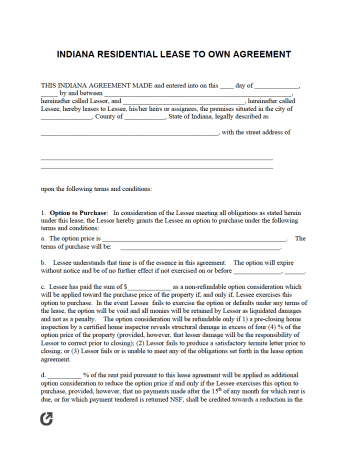
Lease to Own Agreement – Solves two (2) purposes: 1) leases a home or condominium to qualified tenants, and 2) establishes an agreed-upon purchase price for the property that the tenants can optionally decide to act on.
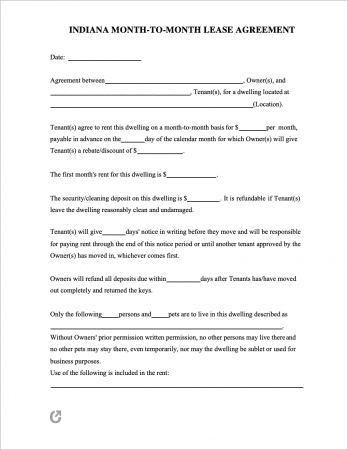
Month-to-Month Lease Agreement – Differing from a typical long-term lease, this lease-type allows for a property to be rented in increments of thirty (30) days, allowing either party to terminate the agreement with one (1) month of notice.
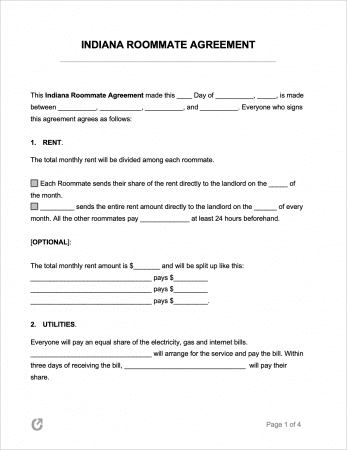
Roommate Agreement – Signed by roommates of a shared rental property that sets out guidelines and obligations each roommate is required to uphold.
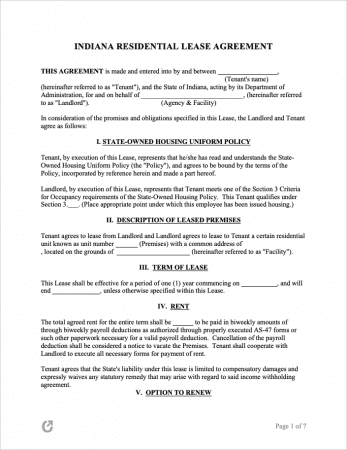
Standard Residential Lease Agreement – The basic lease form for renting individual units or entire properties in the state of Indiana.
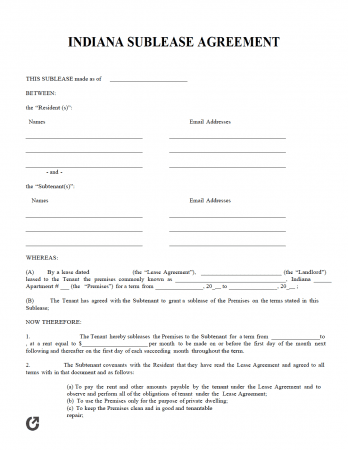
Sublease Agreement – Permits a tenant to rent out part or all of their rental unit to another party.
An Indiana Lease Agreement is a legal document used in property management to lock-in tenants into paying rent for a leased property for an average duration of one (1) year. Each document needs to conform to relevant IN law in addition to complying with federal fair housing laws. Prior to signing a lease with a tenant, they should be screened using an Indiana-specific rental application.
Landlord-Tenant Guides / Handbooks
There is no statute in IN state law specifying when rent is due. There is also no grace period included by state law. The lease agreement should specify the date rent is due as well as the conditions in which a grace period is offered if the landlord chooses to offer one.
Emergency (IC 32-31-5-6(f)): Landlords are permitted by state law to enter a rental unit in emergencies so long the safety of the tenants or the property is threatened.
Non-Emergency (IC 32-31-5-6(g)): Tenants must be provided with reasonable written or oral notice of the landlord’s intent to enter. Entrance may only be made during reasonable times. Although no definition for “reasonable” is given by state law, typical notice is giving tenants a heads-up of at least twenty-four (24) hours and only entering during normal business hours.
As required by IC 32-31-8-5, landlords need to:
Per IC 32-31-7-5, tenants have to comply with the following (in addition to requirements as stated in a lease):
Maximum: State law does not cap the amount of money a landlord can demand as a security deposit.
Returning to Tenant (IC 32-31-3-12): Landlords must return deposits no more than forty-five (45) days after the termination of the lease agreement. If there are deductions made to the deposit they must be written in a list with the amount due next to each deduction.
Deposit Interest: No statute; interest does not need to be paid to tenants on deposits.
Uses of the Deposit: In accordance with state law, landlords can make deductions from tenant deposits for the following reasons: